Publishing in the 21st Century, 2020
Friday, April 24, 2020
My Thoughts on the Gina Tomaine Interview
The first thing that struck me about the interview with Gina Tomaine was thinking about magazines in relation to publishing; that I don't think people often think about non-literary magazines when discussing publishing, especially in literary circles. I think popular culture gives us all a specific idea of what it means to work in a magazine: Kate Hudson in "How to Lose A Guy In 10 Days" or Meryl Streep in "The Devil Wears Prada” are what immediately come to mind, and I think it’s fairly obvious that it’s over-glamorized and not necessarily the only career that a woman is allowed to have (despite how rom-coms seem to think it is). I had never thought about there being specific awards for the people who write and edit magazines, not just for the magazines themselves. It makes sense that magazines would be overly (not the word I’m looking for, something more like “moreso”, but I think it kind of gets the idea across) concerned with fact checking; I’d never thought about it much, but the fact that any mistake could seriously damage the credibility of the magazine puts that much more pressure on the people in charge of making sure that those mistakes don’t happen. It sounds like magazines operate more closely to newspapers than I would have thought. Also, the idea about editing yourself being harder than editing other people’s work definitely hit close to home; I’ve written things and edited them and thought “yes, good, this is good, this is done” and then shared it with a friend who immediately points out at least three spelling mistakes and two places where the idea I was trying to communicate was fully incomprehensible. The pressure of knowing that your writing will affect not just your reputation, but the reputation of everyone you work with is absolutely terrifying. And the scheduling aspect of it all seems incredibly overwhelming; to be working on the June edition at the end of March is absolutely mind blowing to someone who rarely starts things three hours before they’re due, let alone three months. I have to wonder how the coronavirus is affecting publication of magazines; they’re still being sent out (or at least, the ones I’m subscribed to are), but what is the cost for the people working on them? And what kind of permanent effect will it have; obviously more magazines and newspapers and publishers of all kinds are going to be shifting to digital and online platforms, but I have to wonder if physical publishing will ever fully recover from the hit it’s taking right now.
Friday, April 17, 2020
my version of goodreads (well sorta I think)
Ah, yes. Welcome to my realm.
To be fair, I've never used Goodreads. My only exposure to it until literally just now was the rating in the google quick info box whenever I've looked up books. And after a cursory look through the site, it's quite similar to the site I use to categorize manga and light novels (they're kinda like the step between manga and novels, they're full prose but they read really easily and have a similar feel to manga despite being prose), myanimelist. It's got anime in its title because it started as just a platform to categorize and rank anime, but expanded to include manga, books, webcomics, some korean and chinese comics, and so on.
So here's my page:
It's a massive database, there's rankings out of 10, friends lists, favorites, forums, reviews, recommendations, and even its own digital manga store. I think they even host the first few chapters of a bunch of different manga for free.
A specific page looks like this:

Further down the page is background info, links to related series and adaptations, character lists, reviews, discussions, user made recommendations, links for purchase, and articles it's been featured it.
Specific characters have their own pages with bios, stats, and user favorites that are very similar to actor and author pages. A lot of this site is like a more specific version of Wikipedia in how it's built. For example, certain character pages can be super short:

And some can be long:

Like, really long.

And these differences mostly just come from exposure. If there's more people that know about the character, then there's more potential for some really enthusiastic person to pop off about a character they like and write up an essay for them.
I've noticed that mal is a lot beefier of a site than goodreads, but the most surprising thing was the lack of a top books list on goodreads. Like all I saw were the more specific lists of top 2019, and top from a genre, not just a general top of all time list. But I guess on the flipside of that, mal doesn't have many specific top lists, just break downs of major categories for of all time lists.

So yeah, the sites are pretty different, but still fill the same role. The differences probably just come from the demographic difference, like books are far more general while manga and anime are much more specific, thus resulting is more features over at mal.
So anyway, I'll end with my manga favorites list.

To be fair, I've never used Goodreads. My only exposure to it until literally just now was the rating in the google quick info box whenever I've looked up books. And after a cursory look through the site, it's quite similar to the site I use to categorize manga and light novels (they're kinda like the step between manga and novels, they're full prose but they read really easily and have a similar feel to manga despite being prose), myanimelist. It's got anime in its title because it started as just a platform to categorize and rank anime, but expanded to include manga, books, webcomics, some korean and chinese comics, and so on.
So here's my page:
It's a massive database, there's rankings out of 10, friends lists, favorites, forums, reviews, recommendations, and even its own digital manga store. I think they even host the first few chapters of a bunch of different manga for free.
A specific page looks like this:

Further down the page is background info, links to related series and adaptations, character lists, reviews, discussions, user made recommendations, links for purchase, and articles it's been featured it.
Specific characters have their own pages with bios, stats, and user favorites that are very similar to actor and author pages. A lot of this site is like a more specific version of Wikipedia in how it's built. For example, certain character pages can be super short:

And some can be long:

Like, really long.

And these differences mostly just come from exposure. If there's more people that know about the character, then there's more potential for some really enthusiastic person to pop off about a character they like and write up an essay for them.
I've noticed that mal is a lot beefier of a site than goodreads, but the most surprising thing was the lack of a top books list on goodreads. Like all I saw were the more specific lists of top 2019, and top from a genre, not just a general top of all time list. But I guess on the flipside of that, mal doesn't have many specific top lists, just break downs of major categories for of all time lists.
So yeah, the sites are pretty different, but still fill the same role. The differences probably just come from the demographic difference, like books are far more general while manga and anime are much more specific, thus resulting is more features over at mal.
So anyway, I'll end with my manga favorites list.

Thursday, April 16, 2020
#6 Ryouko Kui, refreshing fantasy about food
I haven't been reading much because for the last couple weeks I've just existed in this unmotivated stupor as I attempt to finish off the semester, but before I hit this state I was reading through Delicious in Dungeon by Ryouko Kui.
It's a fantasy manga about a brother attempting to save his sister from the clutches of a dangerous dungeon. Pretty typical set up, but most of the series is focused around eating and trying not to starve to death.
So the series opens on the main party losing a battle with the Red Dragon deep in the dungeon because they ran out of provisions and were wearily hunger. The main character Laius is about to get eaten, but his sister pushes him out of the way and performs a spell to get everyone else back to surface before she gets eaten. Laius immediately wants to go back in to rescue his sister, and because of his suicidal determination to do so, two of his companions leave the party. Left with only two other companions (Chilchack the Halfling and Marcille the Elf) and no supplies he goes back in to slay the Red Dragon before his sister gets digested.



And his plan on how to not starve? Eat the monsters within the dungeon, much to the chagrin of the other two, especially Marcille (she's great cause she's just so done with everything and eats so begrudgingly). Early on in this endeavor they meet a dwarf, Senshi, who has been living in the dungeon for a while and he joins them as a very crucial cook and source of knowledge.

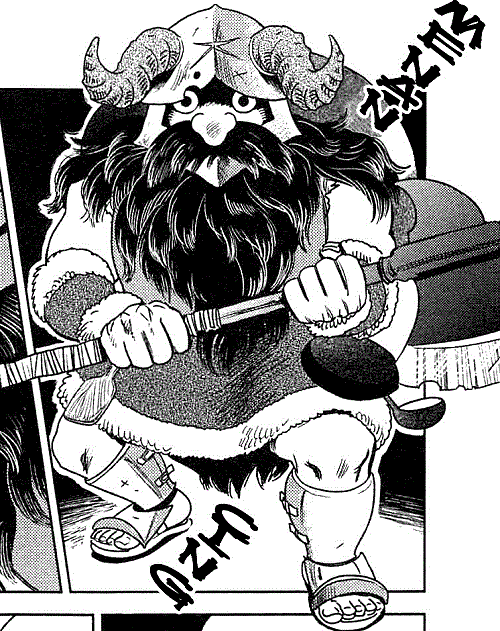
This dude's pretty sick. And he actually turns into such a bro, which with where I am currently in the story I'm not entirely sure why? Maybe he just has a strong sense of duty, but he's become a more loyal ally to Laius than Chilchack, who had been in his party for waaaay longer than Senshi.
Most things being told through the perspective of food (and really wacky food, like slimes, mimics, krakens, mandrakes, vegetables farmed off the backs of golems, etc) makes it have a really interesting spin. It gives the monsters a lot of personality and detail, and I just think it's a refreshing take on the typical Tolkien fantasy setting.


Also, the plot isn't all just going to find the Red Dragon, they actually defeat it around chapter 25 (it's currently 63 chapters long, updating monthly). I'm only a little past this point, but it developing beyond the original concept has been great so far. It's gotten more characters and more world building and it's gotten a lot darker and everything feels graver and more pressing.
Also here's an animated commercial that got made for one of the book releases. https://www.youtube.com/watch?v=-aUBQZc9h1w
I look forward to getting back to it once school allows me to be a person again.

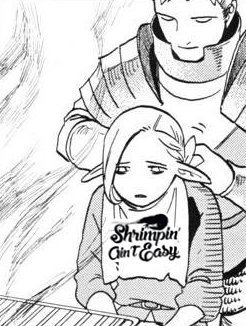
It's a fantasy manga about a brother attempting to save his sister from the clutches of a dangerous dungeon. Pretty typical set up, but most of the series is focused around eating and trying not to starve to death.
So the series opens on the main party losing a battle with the Red Dragon deep in the dungeon because they ran out of provisions and were wearily hunger. The main character Laius is about to get eaten, but his sister pushes him out of the way and performs a spell to get everyone else back to surface before she gets eaten. Laius immediately wants to go back in to rescue his sister, and because of his suicidal determination to do so, two of his companions leave the party. Left with only two other companions (Chilchack the Halfling and Marcille the Elf) and no supplies he goes back in to slay the Red Dragon before his sister gets digested.



And his plan on how to not starve? Eat the monsters within the dungeon, much to the chagrin of the other two, especially Marcille (she's great cause she's just so done with everything and eats so begrudgingly). Early on in this endeavor they meet a dwarf, Senshi, who has been living in the dungeon for a while and he joins them as a very crucial cook and source of knowledge.


This dude's pretty sick. And he actually turns into such a bro, which with where I am currently in the story I'm not entirely sure why? Maybe he just has a strong sense of duty, but he's become a more loyal ally to Laius than Chilchack, who had been in his party for waaaay longer than Senshi.
Most things being told through the perspective of food (and really wacky food, like slimes, mimics, krakens, mandrakes, vegetables farmed off the backs of golems, etc) makes it have a really interesting spin. It gives the monsters a lot of personality and detail, and I just think it's a refreshing take on the typical Tolkien fantasy setting.


Also, the plot isn't all just going to find the Red Dragon, they actually defeat it around chapter 25 (it's currently 63 chapters long, updating monthly). I'm only a little past this point, but it developing beyond the original concept has been great so far. It's gotten more characters and more world building and it's gotten a lot darker and everything feels graver and more pressing.
Also here's an animated commercial that got made for one of the book releases. https://www.youtube.com/watch?v=-aUBQZc9h1w
I look forward to getting back to it once school allows me to be a person again.


Thai Harry Potter
time for a shotgun of blog catch up posts over the next couple days. I got really thrown off by, yanno, everything.
So I'll start with the shortest, these cool exclusive Harry Potter covers from Thailand that I came across the other day.
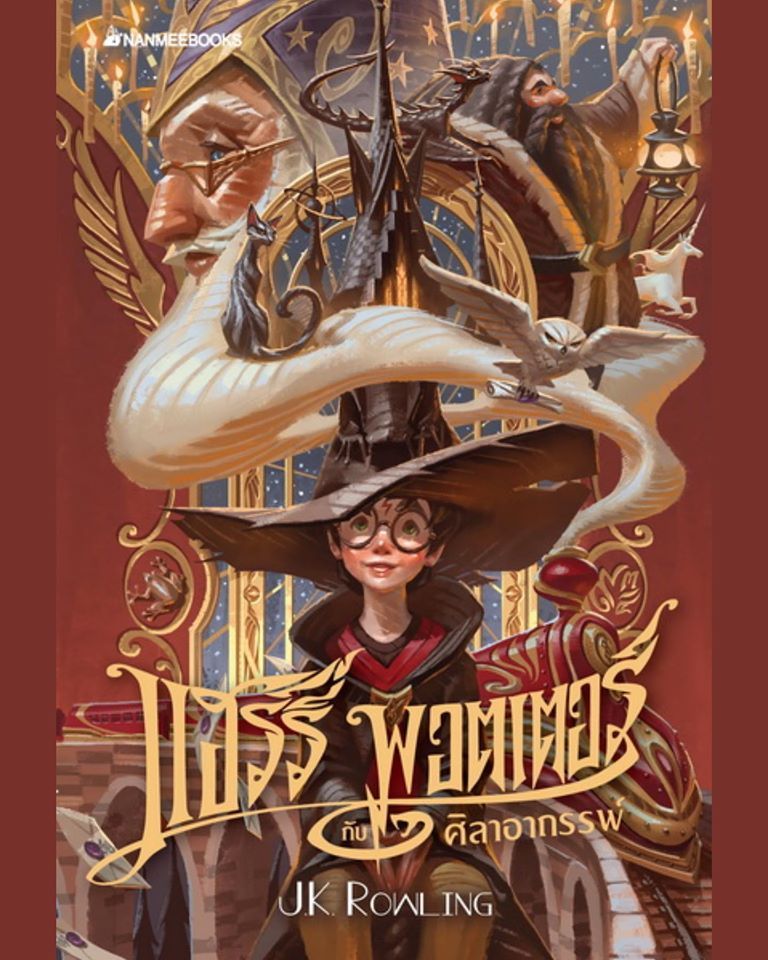
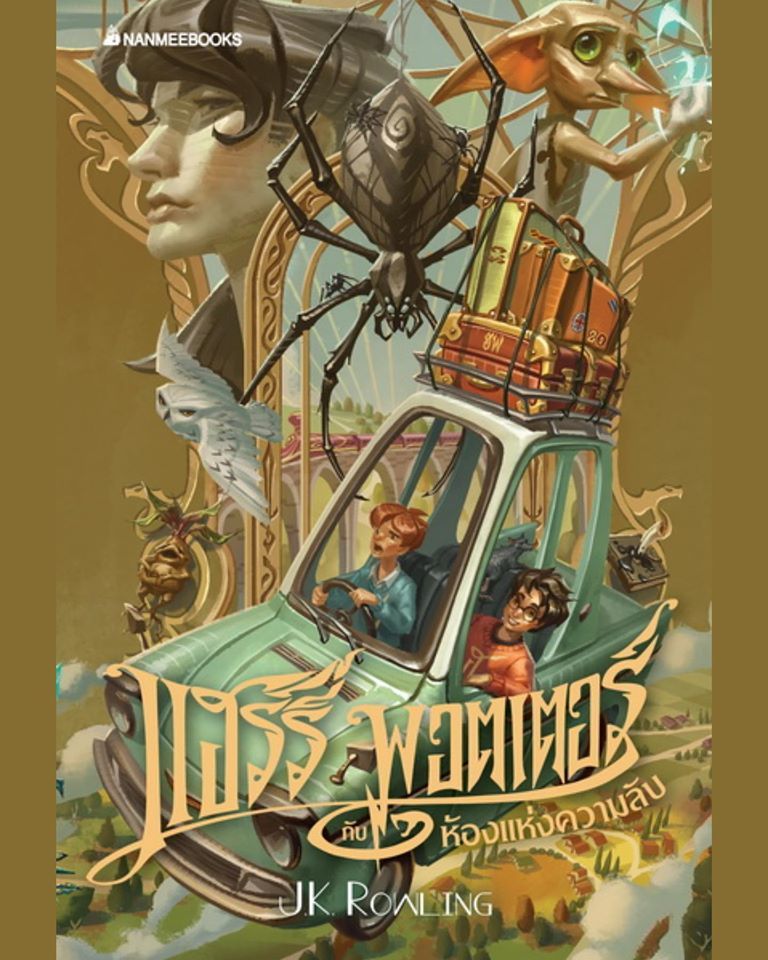
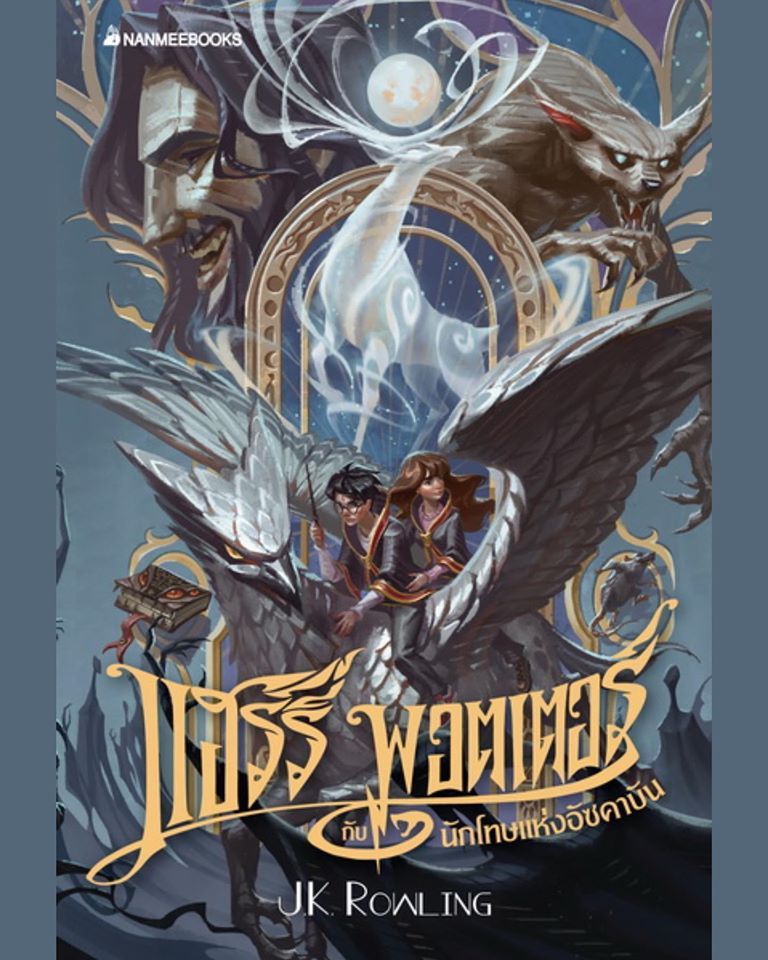
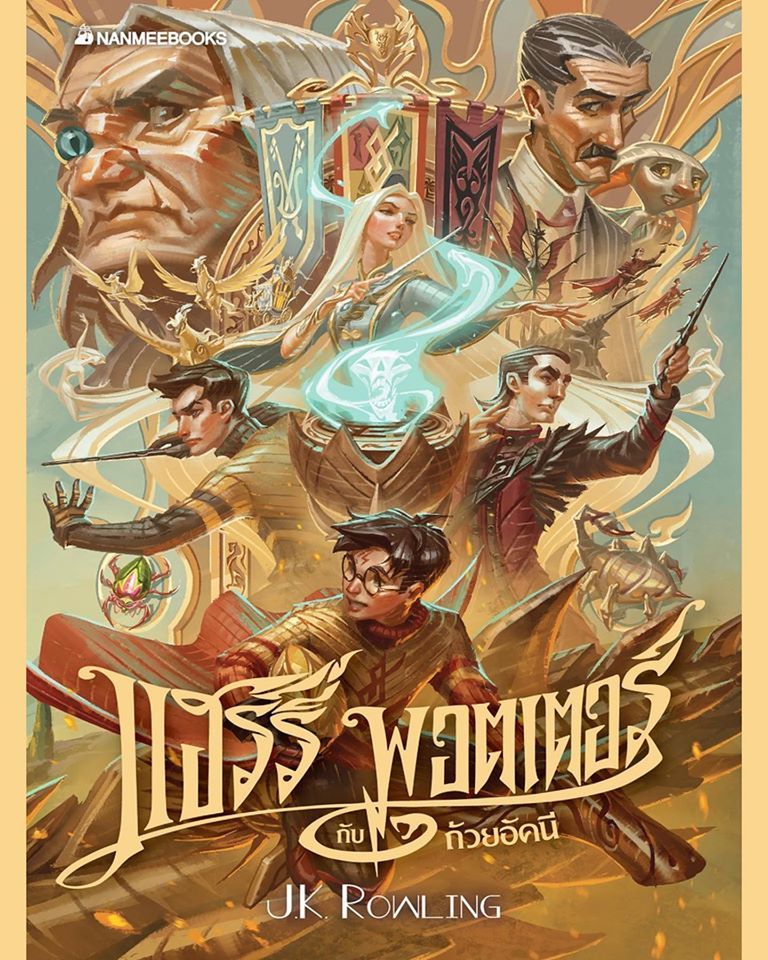
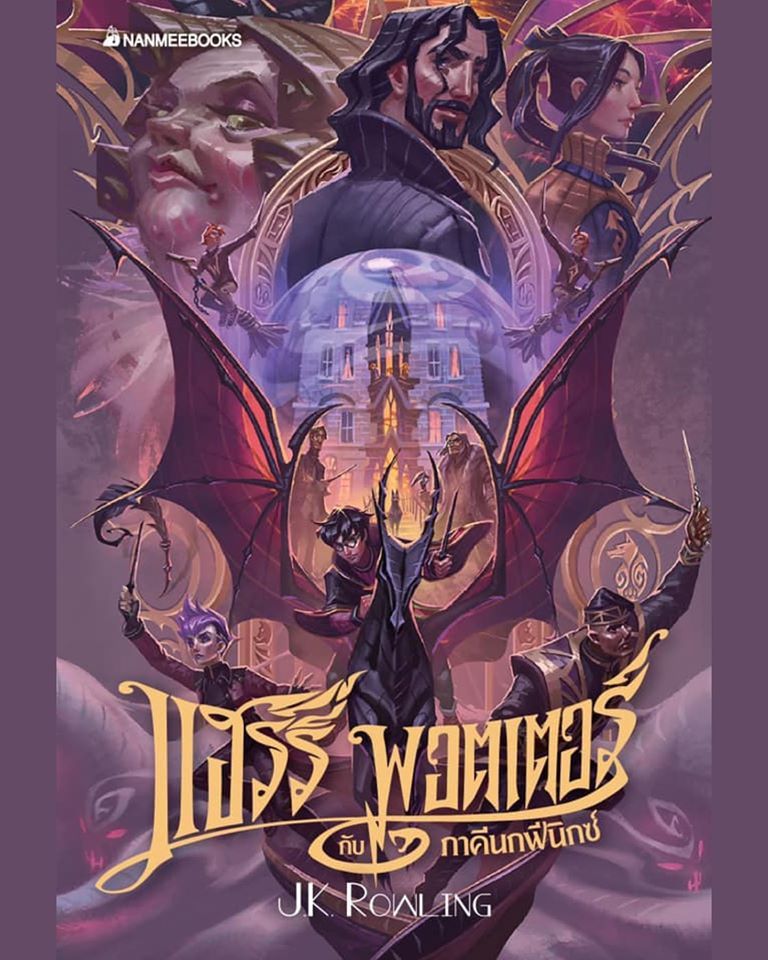
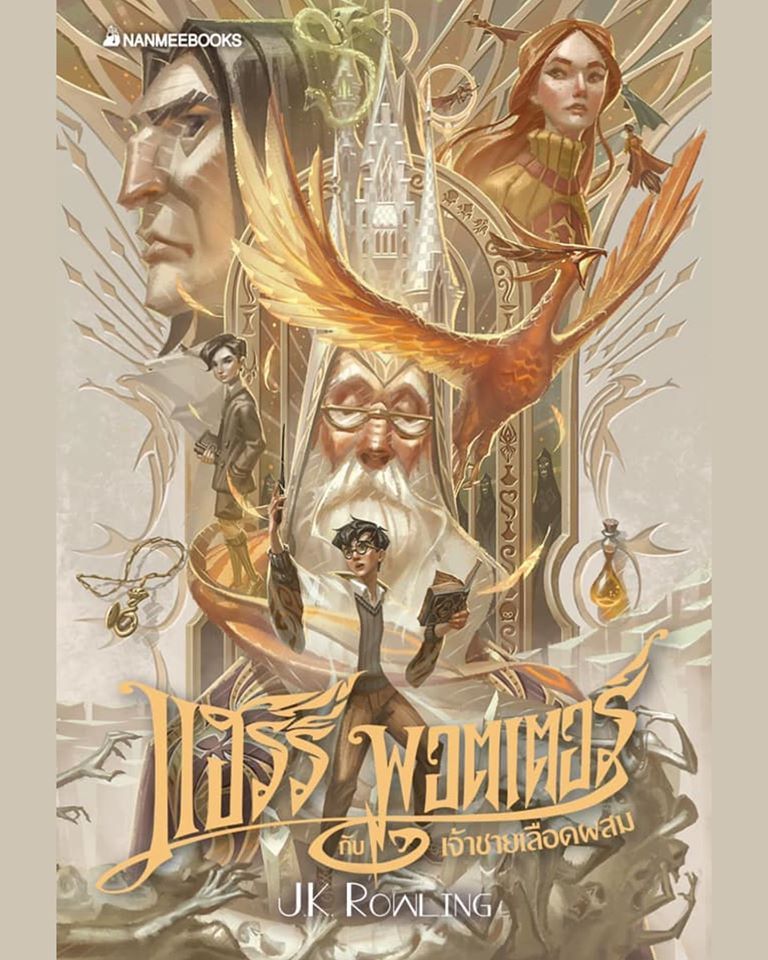
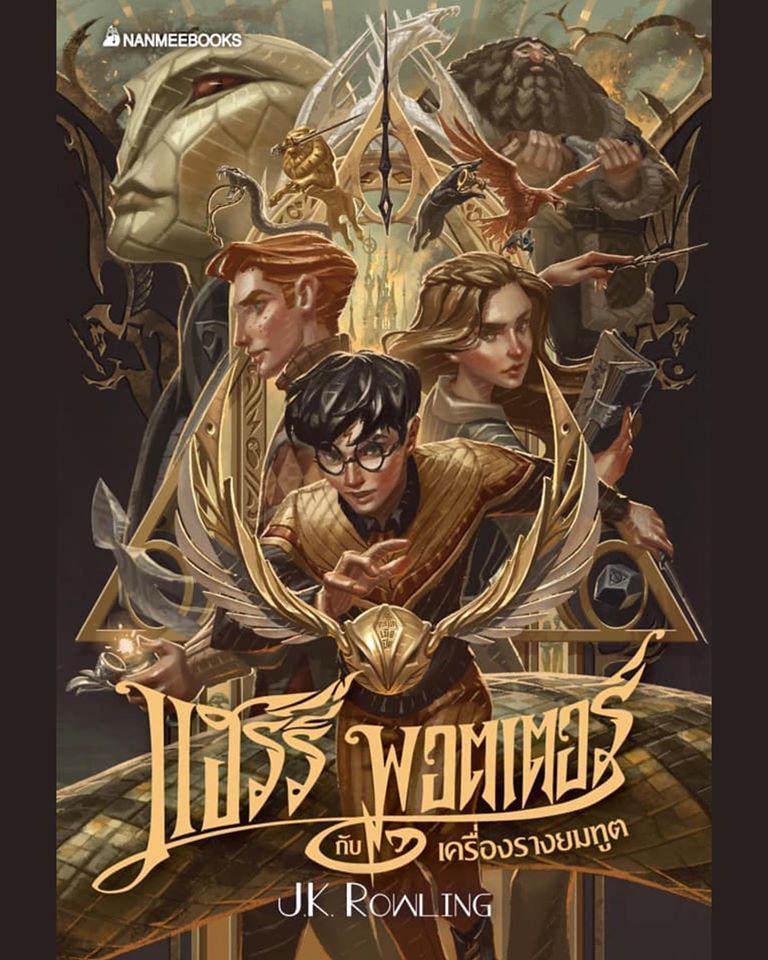
I'm not really the biggest fan of the magic boy but these covers are pretty sweet.
So I'll start with the shortest, these cool exclusive Harry Potter covers from Thailand that I came across the other day.







I'm not really the biggest fan of the magic boy but these covers are pretty sweet.
Wednesday, April 15, 2020
The Good Place and Jean Paul Sartre! ~some~ spoilers
While being stuck at home, I started watching the tv show The Good Place and it is quite good. It is about a woman named Eleanor who dies and is sent to the Good Place, but the system messed up and thinks that she is someone else. Eleanor is a selfish and mean woman who doesn't care about anyone else. The system that decides if people belong in the Good Place or the Bad Place apparently messed up and thought she was a humanitarian who saved lives and was an amazing person. She has to lie in order to prevent her from being sent to the bad place and is taught moral philosophy by her "soulmate", a moral philosophy professor.
At the end of the first season, the four main characters get into a huge argument. Eleanor realizes they are in the Bad Place. They do not need traditional torture devices like flame throwers or knives. They are torturing each other. This immediately made me think of Jean Paul Sartre's play No Exit. After looking more into The Good Place online, I found out that the show is actually loosely based off of the ideas in No Exit.
At the beginning of the semester, one of the attendance questions was what is your favorite book, and mine wasn't actually a book but the play No Exit so I was very excited to learn that the show's premise was based off of that play. I then went back and reread No Exit and was able to find some more similarities.
The characters in No Exit arrive in hell and are confused because it does not look like the traditional idea of hell. There are only 3 couches in a room where the characters are brought into. The Good Place does not actually look like hell either. It seems like a happy normal town. Two of the characters in No Exit have a hard time figuring out why they were sent to hell because they both thought they were good people. One of the woman however openly admits all the evil things she has done and acknowledges that she belongs in hell. This is similar to Eleanor knowing she does not really belong in the Good Place while the other main characters believe that they were great people on Earth and deserve to be there.
On top of the direct connection to No Exit, I have also just been nerding out in general watching this show every time they reference a specific philosopher or branch of moral philosophy. If any of you haven't seen it, I highly recommend watching it (sorry I gave away what happens in the first season but I was too excited not to share!). I also suggest reading No Exit because it is my favorite story! It is a short one act and an easy read; not a lot of jargon. It really reframed my thinking the first time I read it and each time I read it I feel like I notice new subtleties and learn new stuff.
Tuesday, April 14, 2020
Reading updates and brain mush
Admittedly, quarantine has me totally in my own head, and disparate from my academic responsibilities. I'm sure many can relate. I've been calling it "brain mush" because that's the only thing that captures it. Time is now just imaginary; everything is imaginary outside of my room. Are people not talking about it because we're still in collective shock or because we get it already and I'm just the last to adjust? Anyway....
Schoolwise, I've read Moby Dick by Herman Melville, as well as an English-professor-grade curation of Emily Dickinson poems. Moby Dick was actually really good and beautifully written, barring the slow plot and my ambivalence towards Melville.
I put in a fairly big order at Better World Books last week, since they had a sale/free shipping special and honestly, I've been long overdue for finding a way to keep my mind occupied. The novelty and panic have worn off to make room for boredom and restlessness.
Yesterday I read Giovanni's Room by James Baldwin in two sittings. It was published as part of Penguin's "Great Loves" series in the UK, so I had to adjust to the punctuation being a bit wonky. But it was really profound and sad and beautiful. Baldwin's writing isn't pretentious - he uses words twice in sentences sometimes - but the deeper meanings he conveys are immense, and I know I'm going to have to read it over again. He does a great job of depicting shame with raw honesty, and in a way I have never read before.
Last night I started Billie Holiday's autobiography (cowritten with William Dufty since she only went to school through the fifth grade), Lady Sings the Blues. She's a riot. It's not a literary gem, so to speak, and brings me back to our discussion of what gets published, but she was such a badass woman it's certainly an instance of the content being more important than the delivery. And yet! her personality is so infused in the retelling the delivery is something in itself. I love her music and there's something so special about hearing about an artist's life in their own words. I'm only on page 52 but that progress alone was made in a very sleepy state, so I'm sure I'll chug through it without much difficulty.
Next in my queue is Milan Kundera's The Book of Laughter and Forgetting, a translation by the author of another book I read and really enjoyed, The Unbearable Lightness of Being. He has a really cool way of bringing unexpected perspectives so eloquently to taboos and common occurrences alike that you can't tear yourself away from seeing how he's going to finish his thoughts. It's refreshing, if cynical at times, but then again I like cynicism more than walking in circles around banalities, especially if it's done tastefully. A breath of fresh air for someone who tends to dwell in heavy things.
More books are coming any day now! I don't even remember what else I ordered but I'm more than happy to be surprised. I hope everyone is staying safe and doing okay!
Schoolwise, I've read Moby Dick by Herman Melville, as well as an English-professor-grade curation of Emily Dickinson poems. Moby Dick was actually really good and beautifully written, barring the slow plot and my ambivalence towards Melville.
I put in a fairly big order at Better World Books last week, since they had a sale/free shipping special and honestly, I've been long overdue for finding a way to keep my mind occupied. The novelty and panic have worn off to make room for boredom and restlessness.
Yesterday I read Giovanni's Room by James Baldwin in two sittings. It was published as part of Penguin's "Great Loves" series in the UK, so I had to adjust to the punctuation being a bit wonky. But it was really profound and sad and beautiful. Baldwin's writing isn't pretentious - he uses words twice in sentences sometimes - but the deeper meanings he conveys are immense, and I know I'm going to have to read it over again. He does a great job of depicting shame with raw honesty, and in a way I have never read before.
Last night I started Billie Holiday's autobiography (cowritten with William Dufty since she only went to school through the fifth grade), Lady Sings the Blues. She's a riot. It's not a literary gem, so to speak, and brings me back to our discussion of what gets published, but she was such a badass woman it's certainly an instance of the content being more important than the delivery. And yet! her personality is so infused in the retelling the delivery is something in itself. I love her music and there's something so special about hearing about an artist's life in their own words. I'm only on page 52 but that progress alone was made in a very sleepy state, so I'm sure I'll chug through it without much difficulty.
Next in my queue is Milan Kundera's The Book of Laughter and Forgetting, a translation by the author of another book I read and really enjoyed, The Unbearable Lightness of Being. He has a really cool way of bringing unexpected perspectives so eloquently to taboos and common occurrences alike that you can't tear yourself away from seeing how he's going to finish his thoughts. It's refreshing, if cynical at times, but then again I like cynicism more than walking in circles around banalities, especially if it's done tastefully. A breath of fresh air for someone who tends to dwell in heavy things.
More books are coming any day now! I don't even remember what else I ordered but I'm more than happy to be surprised. I hope everyone is staying safe and doing okay!
Monday, April 13, 2020
on editing general nonfiction by matt weiland
Hiya, it's been a while. How's the apocalypse been?
So this delivers on exactly what the title makes you expect, and it was surprisingly similar to fiction. From the slight amount that I've dipped my toes into the fiction writing world and the bits of edits I've received are very similar in nature (although I can definitely say that that I've never received a note of just yee-haw as the Weiland said he is sometimes wont to do). It was interesting to see the editor go on about the narrative, the arc, and the "curve" of nonfiction books, which I had never really thought about. Granted, I really don't enjoy nonfiction so I haven't thought about it much in general, but it was different and a bit intriguing to see the viewpoint of someone with a burning passion for nonfiction.
One certain interesting bit was how with one book Weiland was editing a book about an author's time at the New York Times, he asked the author to "think like a chapter" and to consider the narrative propulsion of the piece and considering the questions they want to guide the reader to. Now while this sounds super like fiction, the interesting part is that elsewhere in the article Weiland was overjoyed when one of his authors included an over-the-top in-depth history and description of phosphorous. The only question I'm being guided through is "Why?" One had interesting and entertaining stories but needed direction, and the other dude had a somewhat related topic but then went ridiculously hard on it and that was fine. I guess execution is at the heart of everything in writing, but the dichotomy there struck me.
So yeah, the main message I got was that what to consider when writing and editing nonfiction and fiction isn't entirely different. The subject of the reader that needs to be considered doesn't change much as both are generally marketed.
"Whether the writers I work with follow my editorial suggestions or not, what I hope they remember is the spirit in which they're made—an enduring commitment to a writer's ideas and style, a passion for making them public, and a diehard belief that there are plenty of good readers for great general nonfiction on any subject."
One certain interesting bit was how with one book Weiland was editing a book about an author's time at the New York Times, he asked the author to "think like a chapter" and to consider the narrative propulsion of the piece and considering the questions they want to guide the reader to. Now while this sounds super like fiction, the interesting part is that elsewhere in the article Weiland was overjoyed when one of his authors included an over-the-top in-depth history and description of phosphorous. The only question I'm being guided through is "Why?" One had interesting and entertaining stories but needed direction, and the other dude had a somewhat related topic but then went ridiculously hard on it and that was fine. I guess execution is at the heart of everything in writing, but the dichotomy there struck me.
So yeah, the main message I got was that what to consider when writing and editing nonfiction and fiction isn't entirely different. The subject of the reader that needs to be considered doesn't change much as both are generally marketed.
"Whether the writers I work with follow my editorial suggestions or not, what I hope they remember is the spirit in which they're made—an enduring commitment to a writer's ideas and style, a passion for making them public, and a diehard belief that there are plenty of good readers for great general nonfiction on any subject."
Subscribe to:
Comments (Atom)
